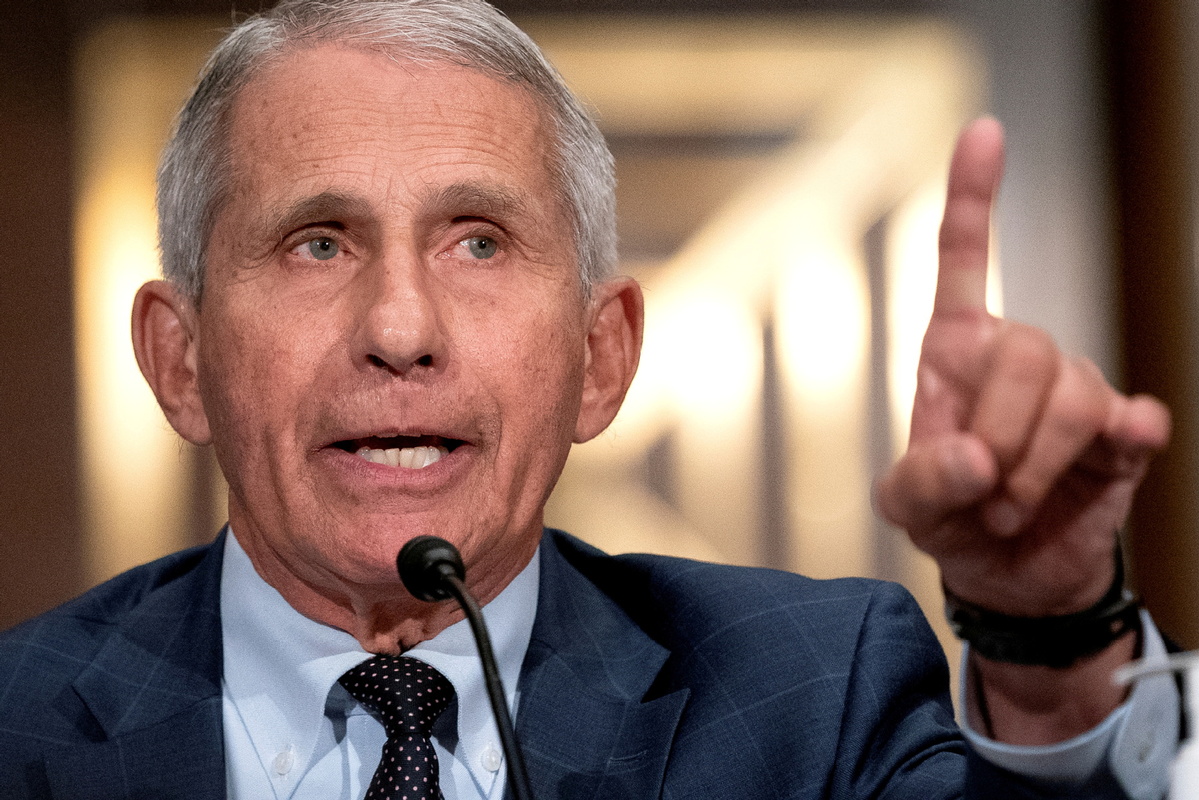Fauci foresees more virus 'pain' but not lockdowns


Dr Anthony Fauci cautioned Sunday that there will be more "pain and suffering" as coronavirus cases rise but he doesn't expect another round of lockdowns in the US because he believes enough people are vaccinated.
"Not enough to crush the outbreak, but I believe enough to not allow us to get into the situation we were in last winter," he said on the ABC News show This Week.
The comments by Fauci, the chief White House medical adviser, follow a change in course last week by the Centers for Disease Control and Prevention to recommend that vaccinated people wear masks indoors in parts of the US where the delta variant is pushing infection rates higher.
"So we're looking, not, I believe, to lock down, but we're looking to some pain and suffering in the future because we're seeing the cases go up, which is the reason why we keep saying over and over again, the solution to this is get vaccinated and this would not be happening," said Fauci, who is also the director of the National Institute of Allergy and Infectious Diseases.
With the CDC guidance switch, federal health officials have cited studies showing vaccinated people can spread the virus, called "breakthrough" infections. Although the vast majority cause mild or no symptoms, the research shows they can carry about the same amount of coronavirus as those who didn't take the vaccines.
At least 233 staff members at two major San Francisco hospitals, most of them fully vaccinated, tested positive for the coronavirus this month, and most involved the Delta variant, The New York Times reported Saturday.
About 75 to 80 percent of the more than 50 staff members infected at Zuckerberg San Francisco General Hospital were fully vaccinated, Dr Lukejohn Day, the hospital's chief medical officer, told the Times.
The University of California, San Francisco Medical Center said Friday that 153 of its 183 infected staff members had been fully vaccinated.
About 58 percent of Americans have received at least one dose of a vaccine, ranging from a high of 76 percent in Vermont to a low of 40 percent in Mississippi. The number of vaccinations administered, though, has started to rise nationally again.
Florida now has one of the worst coronavirus outbreaks in the nation, based on hospitalizations and new cases per capita. The Southeast state on Sunday had 10,207 people hospitalized with confirmed COVID-19, according to data reported to the US Department of Health & Human Services.
Federal health data released Saturday showed that Florida reported 21,683 new coronavirus cases, the state's highest one-day total since the start of the pandemic. A day earlier, Florida reported 17,093 new cases.
Florida Governor Ron DeSantis has blocked mask mandates in the state's schools, saying parents should decide. He also has signed legislation banning county and local governments from initiating their own restrictions.
"The CDC comes in and says every single person in a school — students, teachers, staff have to be masked at all times. That is not consistent with the evidence. That is not data-driven," he said on Fox News on Saturday.
"I think if the CDC had its way, I think they'd probably have kids in masks indefinitely," he added.
"While hospitals in our state were filling up, DeSantis was shouting about 'Freedom over Faucism,'" said Dr Bernard Ashby, a cardiologist and leader of the Florida chapter of the Committee to Protect Health Care, told public radio station WLRN in Miami.
A survey by The New York Times of data from 10 states shows that more than 1 million COVID-19 vaccine doses have gone to waste since the nation began administering them in December. More than 110,000 doses have been destroyed in Georgia, officials there told the Times. Of the more than 53,000 doses wasted in New Jersey, nearly 20,000 were discarded in June, up from around 4,000 in April.
In Ohio, providers reported that more than 370,000 doses were unusable, while around 50,000 doses in Maryland were not used, officials said.
Among the reasons that the vaccines are wasted include breakage, storage and transportation issues, expiration, and doses prepared but not used after people didn't show up for appointments, the Times reported.
"Early on, it was kind of a crisis because people wanted it (the vaccine) and couldn't get it, and now it's a crisis because we've got it and people don't want it," Dr Marcus Plescia, chief medical officer for the Association of State and Territorial Health Officials, told the newspaper.
The Associated Press and Reuters contributed to this story.

































